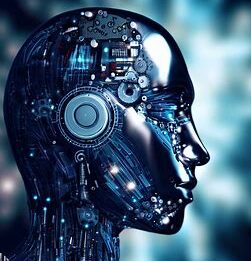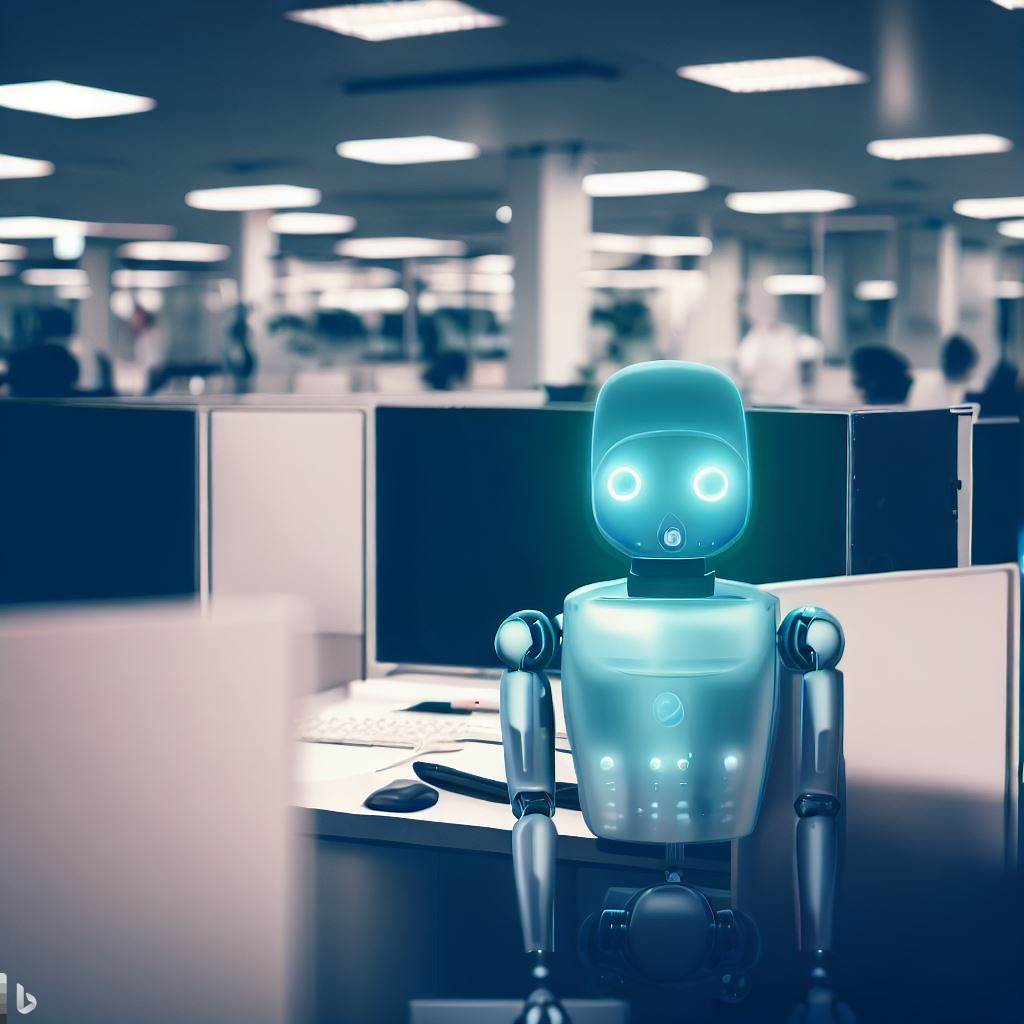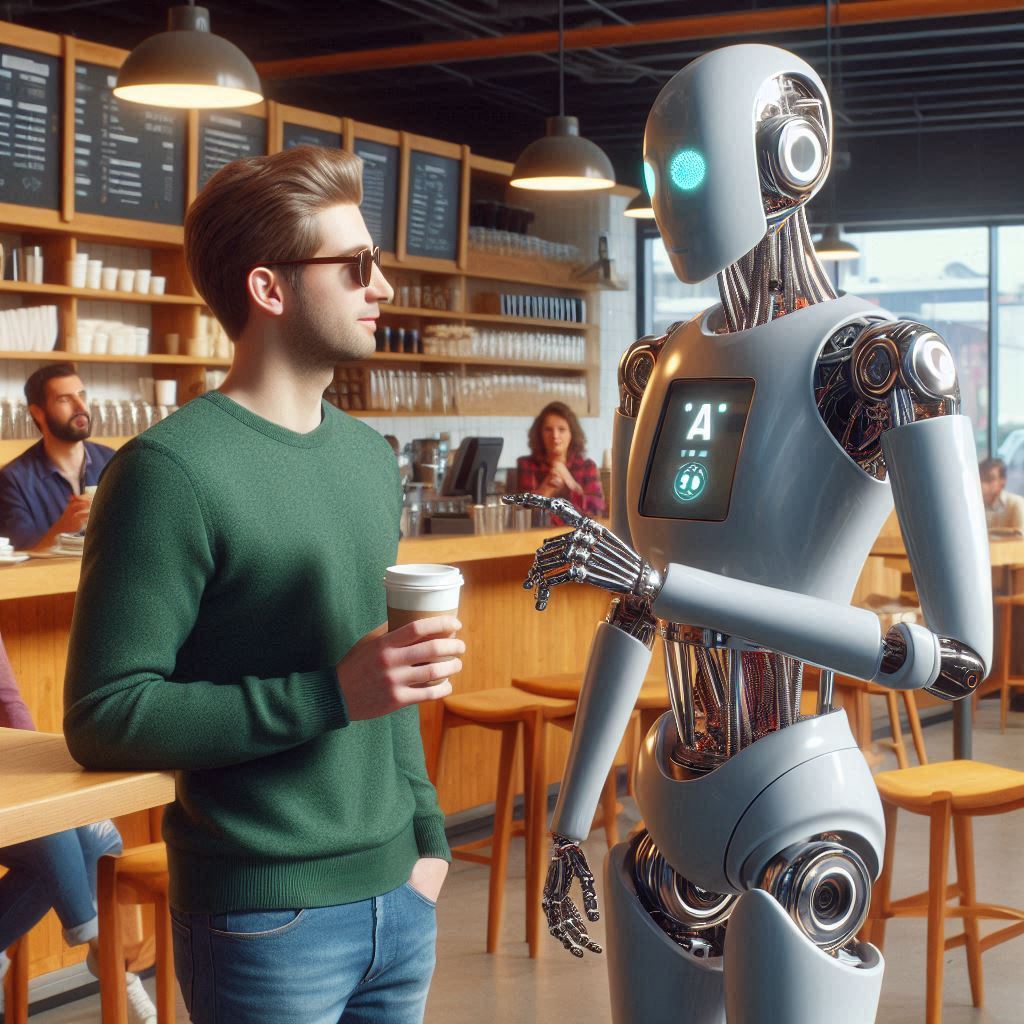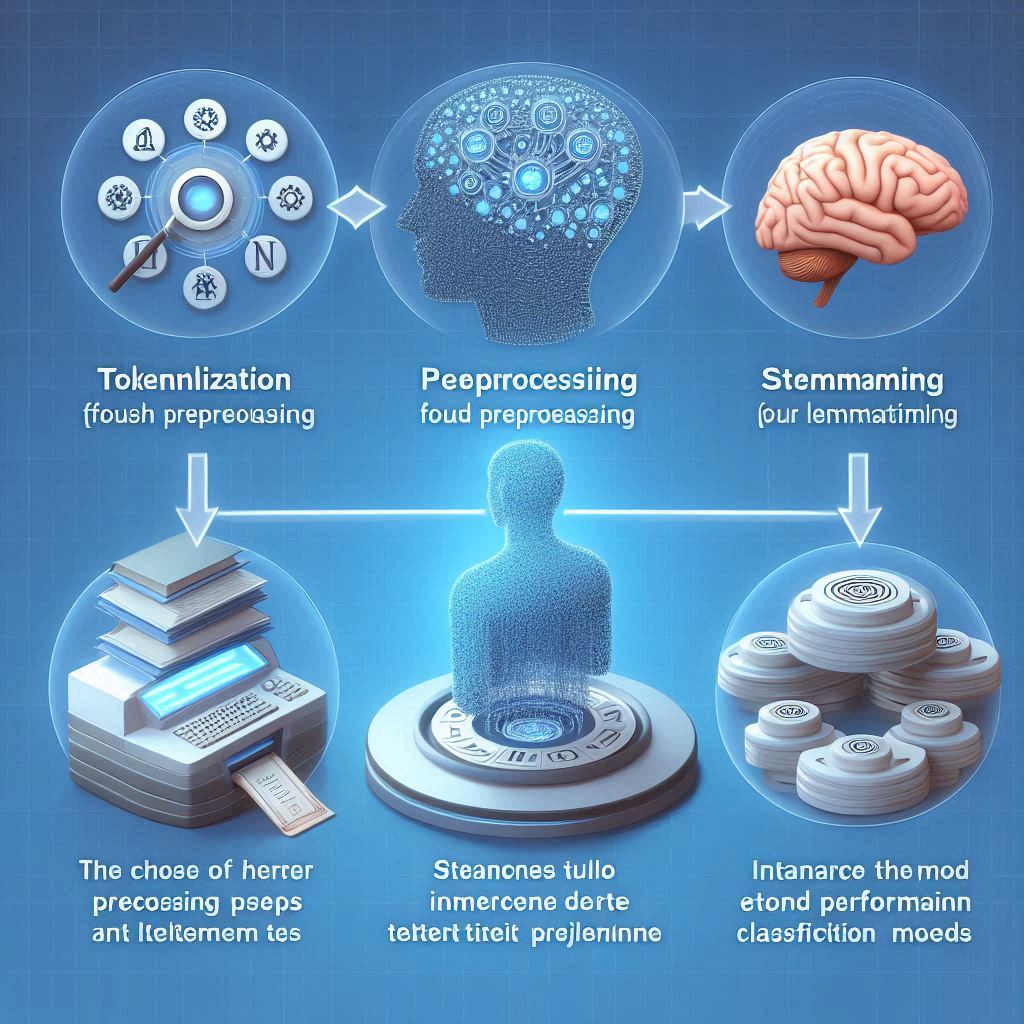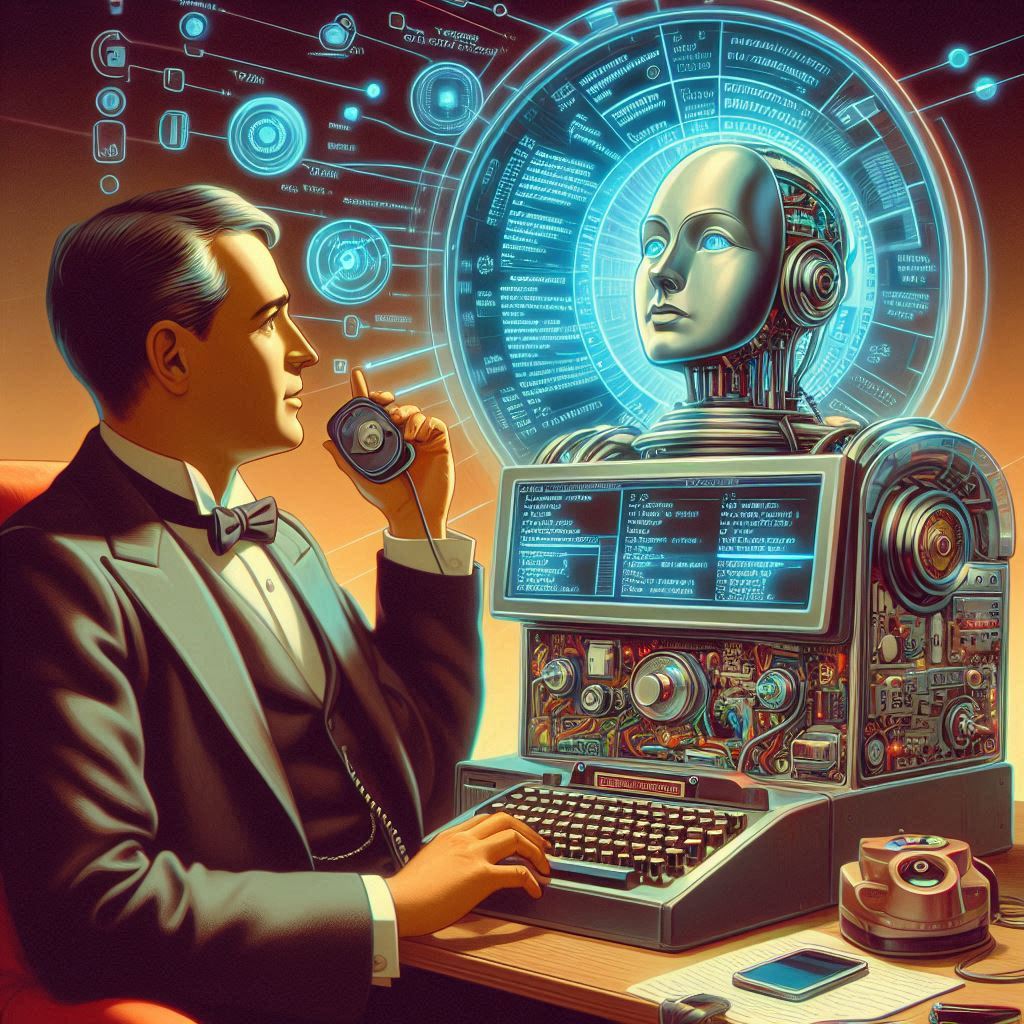Introduction: The Rise of Chatbots in the Workplace
The use of chatbots in the workplace has been on the rise in recent years. Chatbots, also known as virtual assistants, are AI-powered communication tools that can interact with humans in natural language. They can be used for a variety of tasks, including customer service, sales, and marketing.
One of the most popular chatbots today is ChatGPT. ChatGPT is an AI-powered communication tool that uses natural language processing (NLP) to understand and respond to user queries. It is designed to provide quick and accurate responses to customer inquiries, which can help businesses save time and money.
While chatbots like ChatGPT can be beneficial for businesses, there are also concerns about how they will impact job security. Some people worry that chatbots will replace human workers, leading to mass unemployment. In this article, we will explore the pros and cons of chatbots for job security and discuss the future of chatbots in the workplace.
ChatGPT: An AI-Powered Communication Tool
ChatGPT is an AI-powered communication tool that uses natural language processing to understand and respond to user queries. It is based on the GPT (Generative Pre-trained Transformer) architecture, which is a type of deep learning model that is trained on large amounts of text data.
ChatGPT can be used for a variety of tasks, including customer service, sales, and marketing. It can provide quick and accurate responses to customer inquiries, which can help businesses save time and money. ChatGPT can also be integrated with other tools and platforms, such as social media and messaging apps.
Here is an example of how ChatGPT works:
User: Hi, I have a question about my order.
ChatGPT: Hi! I'm ChatGPT. How can I help you with your order?
User: I haven't received my order yet. Can you tell me when it will arrive?
ChatGPT: I'm sorry to hear that. Can you please provide me with your order number so I can look into it for you?The Pros and Cons of Chatbots for Job Security
There are both pros and cons to using chatbots in the workplace. On the one hand, chatbots can be beneficial for businesses because they can provide quick and accurate responses to customer inquiries. This can help businesses save time and money, and improve customer satisfaction.
On the other hand, there are concerns about how chatbots will impact job security. Some people worry that chatbots will replace human workers, leading to mass unemployment. However, this is not necessarily the case.
One of the pros of using chatbots is that they can help businesses save money on labor costs. Chatbots can handle a large volume of customer inquiries, which can reduce the need for human workers. This can be especially beneficial for small businesses that may not have the resources to hire a large customer service team.
However, one of the cons of using chatbots is that they may not be able to handle more complex inquiries. While chatbots are good at providing quick and accurate responses to simple questions, they may struggle with more complex inquiries that require human judgment and reasoning.
Chatbots and the Future of Customer Service
Chatbots are becoming increasingly popular in customer service. Many businesses are using chatbots to handle customer inquiries, which can help them save time and money. Chatbots can also provide a more personalized experience for customers, which can improve customer satisfaction.
One of the benefits of using chatbots for customer service is that they can provide 24/7 support. This means that customers can get help at any time, even outside of business hours. Chatbots can also handle a large volume of inquiries, which can reduce the need for human workers.
However, there are concerns about how chatbots will impact the quality of customer service. Some people worry that chatbots will not be able to provide the same level of support as human workers. While chatbots can be good at providing quick and accurate responses to simple questions, they may struggle with more complex inquiries that require human judgment and reasoning.
Here is an example of how a chatbot can be used for customer service:
User: Hi, I have a question about my account.
Chatbot: Hi! I'm here to help. What's your question?
User: I can't log into my account. Can you help me reset my password?
Chatbot: Sure! I can help you reset your password. Can you please provide me with your email address?The Impact of Chatbots on Human Jobs
There is concern that chatbots will replace human workers, leading to mass unemployment. However, this is not necessarily the case. While chatbots can handle a large volume of customer inquiries, they may not be able to handle more complex inquiries that require human judgment and reasoning.
In fact, chatbots can actually create new job opportunities. For example, businesses may need to hire people to manage and maintain their chatbots. Additionally, chatbots can free up human workers to focus on more complex tasks that require human judgment and reasoning.
However, there is also concern that chatbots will lead to a skills gap. As more tasks become automated, there may be a decreased demand for certain skills. This could lead to a situation where there are not enough workers with the skills that are in demand.
Can Chatbots Replace Human Workers?
While chatbots can handle a large volume of customer inquiries, they may not be able to handle more complex inquiries that require human judgment and reasoning. This means that chatbots are unlikely to replace human workers entirely.
However, chatbots can be used to augment human workers. For example, chatbots can handle simple inquiries, freeing up human workers to focus on more complex tasks. Chatbots can also provide support to human workers, helping them to be more efficient and effective.
It is important to note that chatbots are not a one-size-fits-all solution. While they can be beneficial for certain tasks, they may not be the best solution for all tasks. It is important for businesses to carefully consider their needs and the capabilities of chatbots before implementing them.
The Role of AI in Job Automation
AI is playing an increasingly important role in job automation. As AI technology advances, more tasks are becoming automated. This has led to concerns about how AI will impact job security.
While AI is likely to automate some jobs, it is also likely to create new job opportunities. For example, businesses may need to hire people to manage and maintain their AI systems. Additionally, AI can free up human workers to focus on more complex tasks that require human judgment and reasoning.
It is important for businesses to carefully consider the potential benefits and risks of AI before implementing it. AI can be a powerful tool, but it is important to use it responsibly and ethically.
The Need for Human Skills in the Age of Chatbots
While chatbots can handle a large volume of customer inquiries, they may not be able to handle more complex inquiries that require human judgment and reasoning. This means that human skills are still important in the age of chatbots.
Human skills such as empathy, creativity, and critical thinking are becoming increasingly important in the workplace. These skills cannot be replicated by chatbots or other AI technologies. It is important for businesses to recognize the value of human skills and invest in developing them.
Additionally, businesses can use chatbots to augment human skills. For example, chatbots can handle simple inquiries, freeing up human workers to focus on more complex tasks that require human judgment and reasoning.
The Potential Benefits of Chatbots for Employers
There are several potential benefits of using chatbots for employers. One of the main benefits is that chatbots can help businesses save time and money on customer service. Chatbots can handle a large volume of customer inquiries, which can reduce the need for human workers.
Additionally, chatbots can provide a more personalized experience for customers, which can improve customer satisfaction. Chatbots can also provide 24/7 support, which means that customers can get help at any time, even outside of business hours.
The Risks of Overreliance on Chatbots
While chatbots can be beneficial for businesses, there are also risks associated with overreliance on chatbots. One of the main risks is that chatbots may not be able to handle more complex inquiries that require human judgment and reasoning.
Additionally, overreliance on chatbots can lead to a decrease in the quality of customer service. Customers may become frustrated if they are unable to get the help they need from a chatbot. This can lead to a decrease in customer satisfaction and loyalty.
It is important for businesses to carefully consider the potential risks of chatbots before implementing them. Businesses should also have a plan in place for how to handle more complex inquiries that chatbots may not be able to handle.
Chatbots and the Changing Landscape of Work
Chatbots are just one example of how technology is changing the landscape of work. As technology advances, more tasks are becoming automated. This is leading to a shift in the types of skills that are in demand in the workplace.
It is important for businesses to recognize the potential benefits and risks of technology and to invest in developing the skills that are in demand. Additionally, businesses should have a plan in place for how to handle the impact of technology on their workforce.
Will ChatGPT Really Take Our Jobs?
In summary, chatbots like ChatGPT can be beneficial for businesses because they can provide quick and accurate responses to customer inquiries. However, there are concerns about how chatbots will impact job security. While chatbots can handle a large volume of customer inquiries, they may not be able to handle more complex inquiries that require human judgment and reasoning.
It is important for businesses to carefully consider the potential benefits and risks of chatbots before implementing them. Additionally, businesses should recognize the value of human skills and invest in developing them. Chatbots are just one example of how technology is changing the landscape of work, and it is important for businesses to have a plan in place for how they will manage these changes.
Businesses should take into account the potential impact of chatbots on their workforce, and plan accordingly. They should consider the types of jobs that may be replaced by chatbots, and the types of jobs that may be enhanced by the use of chatbots. Additionally, businesses should look for ways to use chatbots to supplement, rather than replace, human labor. For example, chatbots can be used to automate certain tasks, freeing up employees to focus on more complex tasks that require human expertise.
Businesses should also consider the potential ethical implications of using chatbots. For example, chatbots can be used to collect and store customer data, which could be used for malicious purposes. Businesses should ensure that they have adequate security measures in place to protect customer data.
Overall, chatbots can be a useful tool for businesses, but they should be used with caution. Businesses should take the time to consider the potential implications of using chatbots, and develop a plan for how they will manage the changes that chatbots may bring.
